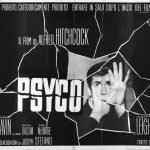Django Unchained (2012)

Django Unchained received widespread acclaim for its bold storytelling, direction, performances, and its unapologetically revisionist approach to American history, particularly the themes of slavery and racial injustice.
Pros:
- Direction and Writing: Quentin Tarantino’s signature style is on full display, blending elements of Westerns and exploitation cinema with sharp, often darkly comedic dialogue. His ability to balance intense violence with moments of levity and deep emotional resonance makes the film a standout.

- Performances:
- Jamie Foxx delivers a strong performance as Django, a man driven by love and revenge. His quiet intensity contrasts well with the more eccentric characters around him.
- Christoph Waltz shines as Dr. King Schultz, a charismatic bounty hunter with a moral compass. His nuanced performance won him the Academy Award for Best Supporting Actor.
- Leonardo DiCaprio plays against type as Calvin Candie, an unrepentant, sadistic plantation owner. His chilling portrayal is both magnetic and terrifying.
- Samuel L. Jackson as Stephen, Candie’s loyal but manipulative house slave, adds another layer of complexity to the story. His character reflects the psychological toll and internal conflicts of slavery.
- Cinematography and Music: The film features stunning cinematography, capturing the American frontier and the deep South with sweeping landscapes and intimate moments of tension. The eclectic soundtrack, which mixes genres and eras, adds an unexpected yet fitting atmosphere to the scenes.

- Themes and Commentary: The film is a bold, unflinching look at the brutality of slavery, racism, and the fight for freedom. While some criticize it for being overly stylized, it’s clear that Tarantino aimed to provoke, challenge, and entertain. The empowerment of Django as a Black hero navigating the horrors of slavery and seeking justice is a significant narrative point.
Cons:
- Violence: As with many Tarantino films, Django Unchained is extremely violent, with graphic depictions of torture, gunfights, and brutal punishments. Some viewers may find it excessive or uncomfortable, particularly in its portrayal of slavery’s violence.
- Pacing: While the film is engaging for the most part, some have pointed out that the third act feels somewhat drawn out, particularly after the climactic showdown at Candie’s plantation.
- Historical Sensitivity: The film’s irreverent tone and use of historical subject matter, including slavery, have sparked debates over whether it trivializes or glorifies certain aspects of the past. Some critics argue that the humor and action sequences may detract from the gravity of the historical trauma depicted.

Conclusion:
Django Unchained is a powerful, provocative film that blends Western revenge tropes with a deeper exploration of racial violence and injustice. It’s a visually stunning, well-acted, and entertaining work, but its handling of sensitive topics might not sit well with all audiences. Despite this, it’s considered one of Tarantino’s most impactful films, one that encourages discussion about race and justice while delivering a memorable cinematic experience.











